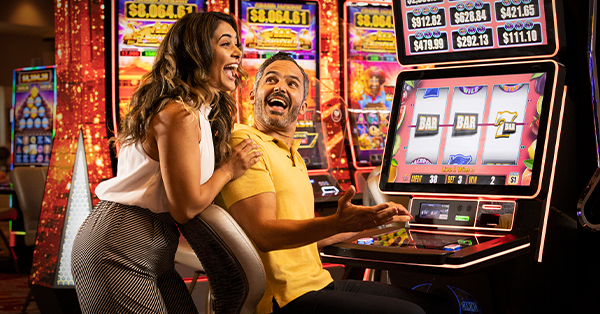Slots are the most entertaining and successful casino games. The reason behind their success lies in our brains, deep within our psyche, which we discuss in this article. The game of chance and luck is not a game of control itself, but people who attach meaning to the outcomes will see it as more than just luck – join here.
Read on to find out more about the psychology behind slot games.
Psychology of Slot Sounds
Humans are attracted to interesting sounds, beautifully-coloured designs, flashy lights and anything appealing and entertaining.
Slot games come in a variety of themes and designs. The combination of lights, sounds and music in these games creates an instant mood booster for players. The purpose of the slots is to entertain players and congratulate them on their winnings – big or small – they will play various sounds to give you a positive psychological reaction.
The sounds produced by slot machines trigger dopamine, which gives you a sense of euphoria. The dopamine keeps you motivated that you will win. The small rewards given by slot machines encourage you to keep playing.
Psychology of Visuals
The themes, graphics and animations are also highly stimulating, which is another reason people love slots. Appealing characters can increase the amount of dopamine in your brain. You become more engaged while exploring the variety these games offer.
Interactive Controls
We humans love certainty, but unfortunately, much of life is uncertain. We seek out certainty in many different areas of our lives as possible.
Slot games play into this human desire to gain more control despite the slots themselves being inherently uncertain. Psychologists have found that pushing and clicking buttons help people feel in control, especially when the action triggers a preprogrammed, visually appealing outcome.
Every time you push or click the spin button, you take control in a way your brain views as positive. Dopamine is released in the brain each time you click the button.
No matter how many times you click the spin button of a slot, the same thing will happen, the reels will spin. This boosts the feeling of control, encouraging players to ignore the uncertainty of losing or winning and keep playing for extended periods.
Cognitive Dissonance in Slots
Cognitive dissonance is a psychological phenomenon that makes players keep gambling without worrying about the risks involved in gambling. Players can easily access every slot game with a Return to Player (RTP) percentage. It tells how much money they can expect to lose from every amount they wager. Despite this amount proving to players that they will lose more than they win on average, they still keep playing.
In conclusion, there are many ways in which your brain works in conjunction with playing slot games, like releasing dopamine, losing track of time and making you believe you’ll b luckier or unluckier than you truly are. Always look for ways to gamble responsibly – set time limits, plan a budget, stick to it and most importantly, have fun.


Comments are closed.